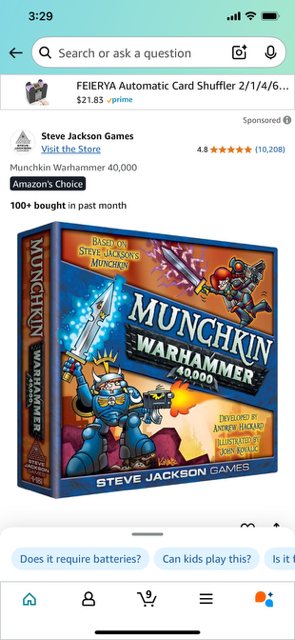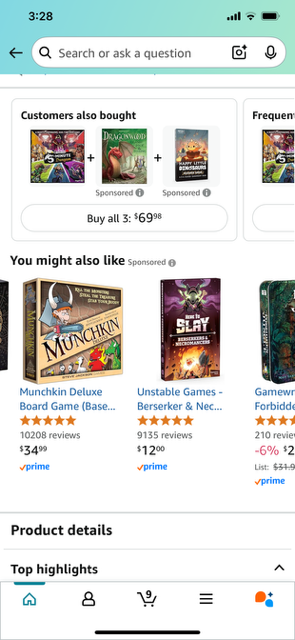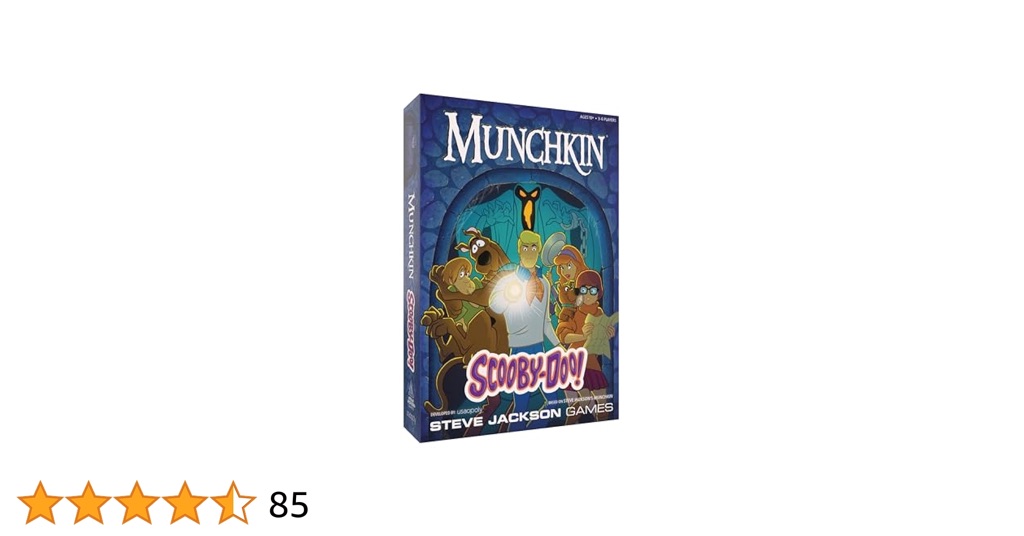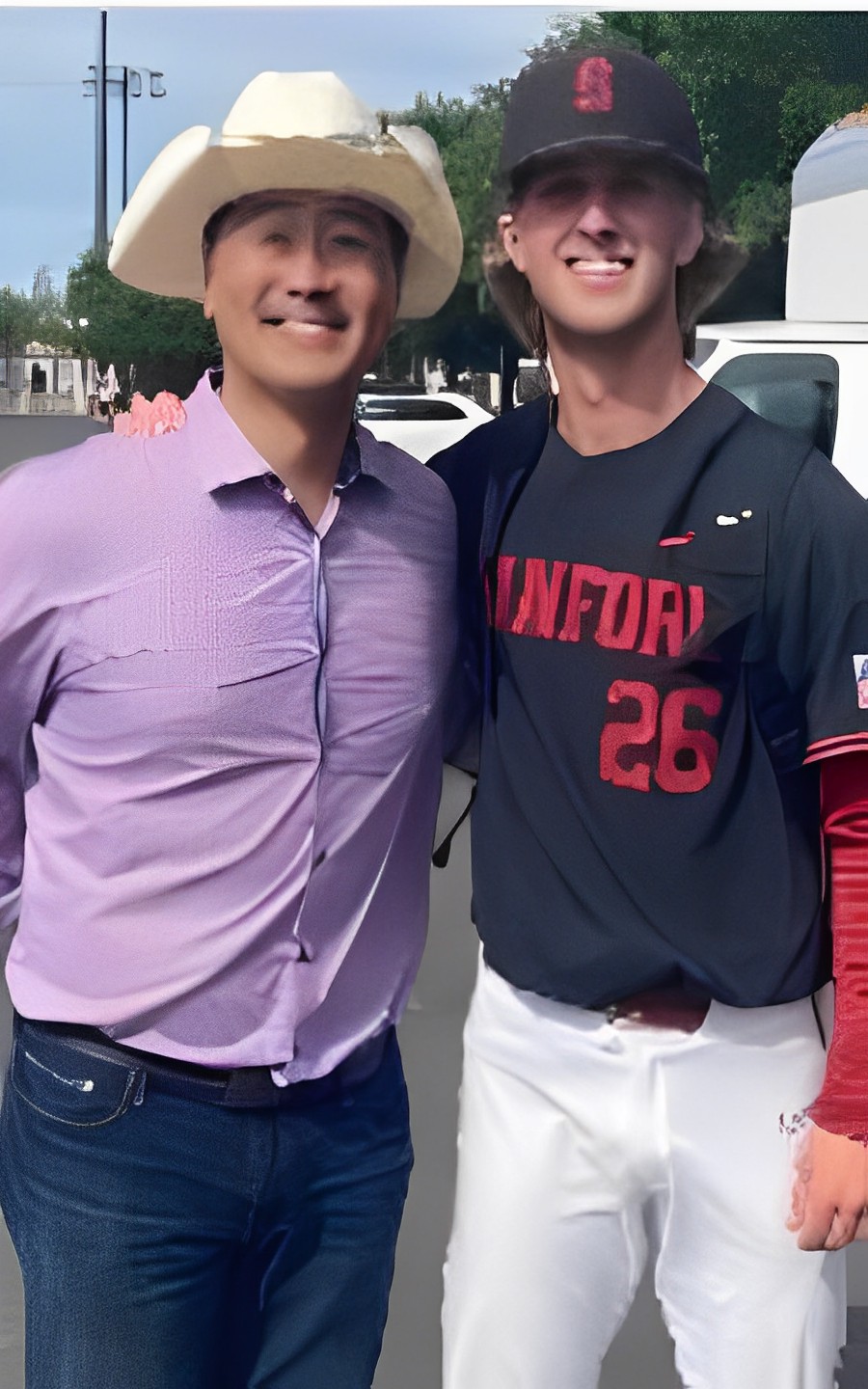


Munchkin Scooby-Doo Card Game
 |
|
|
|
A “crossover entrepreneurship game” combining Steve Jackson card games and Larry Chiang’s startup advisor perspective doesn’t exist as a specific product, based on available information.
However, we can conceptualize what such a game might look like, blending Steve Jackson’s game design expertise (known for *Munchkin*, *GURPS*, and strategic card games) with Larry Chiang’s focus on entrepreneurial strategies, startup growth, and frameworks like “Duck9” or his “What They Don’t Teach You at Stanford Business School” principles.
# Conceptual Crossover Game: “Startup Quest” #
**Game Overview**:
– **Genre**: Strategic card-based game with role-playing elements, inspired by Steve Jackson’s *Munchkin* (a humorous, competitive card game) and Larry Chiang’s startup mentorship philosophy.
– **Objective**: Players compete to build a successful startup by acquiring resources, navigating challenges, and outmaneuvering opponents to achieve an “exit” (e.g., acquisition or IPO), while learning real-world entrepreneurial skills.
– **Players**: 2–6 players, ages 12+, simulating founders, investors, or advisors.
**Game Mechanics** (Inspired by Steve Jackson):
– **Card Types**:
– **Resource Cards**: Represent capital, talent, or technology (e.g., “Seed Funding,” “Star Developer,” “Patent”). Players collect these to level up their startup.
– **Challenge Cards**: Reflect startup hurdles like “Market Crash,” “Lawsuit,” or “Competitor Sabotage,” drawn from Jackson’s knack for chaotic, fun obstacles in *Munchkin*.
– **Action Cards**: Include strategic moves inspired by Chiang’s advice, such as “Cold Email to VC” (gain funding), “Pivot Product” (swap resources), or “Network at SXSW” (steal a talent card).
– **Role Cards**: Players choose roles like “Founder,” “VC,” or “Hacker,” each with unique abilities, mirroring Jackson’s role-playing systems like *GURPS*.
– **Gameplay**:
– Players start with a basic startup idea and limited resources. Each turn, they draw cards, play actions, and face challenges.
– Competitive elements allow players to sabotage others (e.g., “Poach Talent” or “Spread FUD”), reflecting Jackson’s cutthroat game style.
– To win, players must reach a predetermined “exit value” (e.g., $100M valuation) by balancing growth and defense, similar to *Munchkin*’s level-based victory.
**Larry Chiang’s Influence**:
– **Entrepreneurial Frameworks**: The game incorporates Chiang’s concepts, like:
– **”Two-Sided Market Strategy”**: Cards that reward building user bases on both sides (e.g., buyers and sellers).
– **”Fat Startup vs. Lean Startup”**: Players choose between heavy investment (high risk/reward) or lean bootstrapping (slower but safer).
– **”Credit Score Hustle”**: Inspired by Chiang’s Duck9, players can boost their startup’s credibility to unlock better funding.
– **Educational Elements**: Action cards teach real-world tactics, such as leveraging credit lines, pitching to investors, or surviving cash flow crises, drawn from Chiang’s startup advising.
– **Humor and Realism**: Chiang’s witty, irreverent style (e.g., his “VC pitch as a pickup line” analogies) blends with Jackson’s humorous card flavor text for an engaging tone.
**Example Play**:
– Player 1 (Founder) plays “Angel Investor” to gain $500K but draws “Server Crash” challenge, losing a turn unless they discard a tech card.
– Player 2 (VC) uses “Due Diligence” to steal Player 1’s talent card, but Player 1 counters with “PR Stunt” (Chiang-inspired) to regain momentum.
– The first player to reach the “IPO” card or get acquired (by collecting “Big Tech Offer” cards) wins.
**Why It Works**:
– Steve Jackson’s card game expertise ensures fast-paced, replayable mechanics with strategic depth and humor, appealing to gamers.[](en.wikipedia.org/wiki/Steve_Jackson_%28American_game_designer%29)
– Larry Chiang’s startup insights add educational value, teaching players about funding, pivots, and market strategies in a practical, memorable way.
– The crossover captures the chaotic, competitive nature of entrepreneurship, aligning with games like *The Entrepreneur Card Game*, but with a unique blend of Jackson’s fantasy-driven mechanics and Chiang’s Silicon Valley realism.[](boardgamegeek.com/boardgame/38974/the-entrepreneur-card-game)
### Existing Games for Reference
While no exact crossover exists, related entrepreneurship games provide context:
– *The Entrepreneur Card Game* (*BoardGameGeek*): A strategy game where players build businesses and accumulate wealth, with mechanics like opening businesses and protecting assets. A crossover could adopt similar wealth-building goals but add Jackson’s chaotic card interactions.[](boardgamegeek.com/boardgame/38974/the-entrepreneur-card-game)
– *Startup: The Board Game* (Kickstarter): Focuses on raising funds and hiring employees, which aligns with Chiang’s growth strategies.[](https://www.kickstarter.com/projects/brittanyinstaflo/startup-the-board-game-for-entrepreneurs)
– *The Entrepreneur Game* (EESpeaks): A STEM-accredited board game teaching financial literacy and business strategy, suitable for blending with Jackson’s card-based systems.[](educationalgamestore.com/)
### Why No Direct Match?
– Steve Jackson’s portfolio (*Munchkin*, *Ogre*) focuses on fantasy, sci-fi, or abstract strategy, not entrepreneurship.[](en.wikipedia.org/wiki/Steve_Jackson_%28American_game_designer%29)
– Larry Chiang, a startup advisor, hasn’t been directly linked to game design, though his mentorship content could inspire game mechanics.
– A crossover would likely be a custom or hypothetical project, as no evidence suggests collaboration between Jackson and Chiang.
If you’re envisioning a specific game or want to explore designing one (e.g., rules, themes, or mechanics), let me know, and I can dive deeper or sketch out a prototype! Alternatively, if you meant a different type of “crossover” or have more context, please clarify.



 Duck9 is a credit score prep program that is like a Kaplan or Princeton Review test preparation service. We don't teach beating the SAT, but we do get you to a higher credit FICO score using secret methods that have gotten us on TV, Congress and newspaper articles. Say hi or check out some of our free resources before you pay for a thing. You can also text the CEO:
Duck9 is a credit score prep program that is like a Kaplan or Princeton Review test preparation service. We don't teach beating the SAT, but we do get you to a higher credit FICO score using secret methods that have gotten us on TV, Congress and newspaper articles. Say hi or check out some of our free resources before you pay for a thing. You can also text the CEO:







